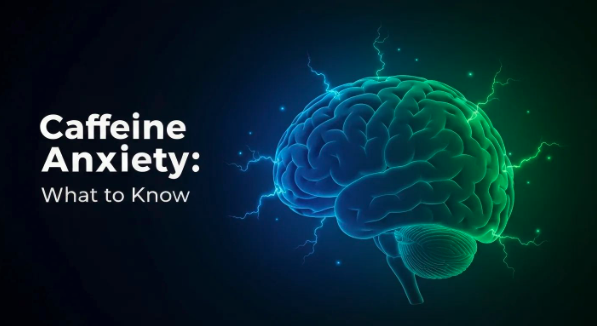Decoding High-Functioning Depression
Discover high-functioning depression: when depression is hidden and learn how to seek help and support.

Understanding High-Functioning Depression
High-functioning depression is a phrase that brings a unique perspective to the conversation about mental health. While many may be familiar with the traditional symptoms of depression, high-functioning depression offers a different view, often overlooked in discussions about mental well-being.
Debunking the Term
The term "high-functioning depression" is not universally accepted within the mental health community. Many mental health professionals agree that it does not officially exist, as it is not recognized by the Diagnostic and Statistical Manual of Mental Disorders, Fifth Edition (DSM-5). However, high-functioning depression is often used to describe individuals who exhibit symptoms of depression while managing to fulfill their daily responsibilities. This can create a misleading impression; those affected might not seek help promptly, leading to long-term repercussions on their overall health and quality of life [2].

Differentiating from Major Depression
Understanding the distinctions between high-functioning depression and Major Depressive Disorder (MDD) is essential. While both are forms of depression, their visibility and impact on daily functioning vary significantly. Individuals with high-functioning depression may excel in their jobs or maintain social relationships outwardly, yet still grapple internally with persistent feelings of sadness, hopelessness, and fatigue [2].
AspectHigh-Functioning DepressionMajor Depressive Disorder (MDD)FunctionalityCan manage daily tasksDifficulty performing daily tasksVisibility of SymptomsOften masked; appears "fine"Obvious signs of distressEmotional StatePersistent sadness or inadequacyOverwhelming feelings of despairRecognitionHarder to identify due to stereotypesMore recognizable with clear symptoms
The discrepancy in how these two forms of depression present can make it challenging for loved ones and the individuals themselves to recognize the seriousness of high-functioning depression. Many people mistakenly associate "real" depression with severe functional impairment, which can obscure the underlying symptoms of inadequacy, anxiety, and self-doubt experienced by those with high-functioning depression [3].
Understanding this condition is vital, as it can aid individuals and their support networks in recognizing the importance of addressing mental health concerns, ensuring that help is sought when needed. For more insights on male experiences with depression, consider reading about male depression: breaking the silence and stigma.
Signs and Symptoms of High-Functioning Depression
High-functioning depression can be difficult to identify, as those who experience it often maintain a facade of normalcy while dealing with internal struggles. Understanding the signs and symptoms is essential for recognizing this hidden condition.
Internal vs. External Presentation
Individuals with high-functioning depression may appear outwardly fine, meeting social and professional expectations while silently grappling with persistent feelings of sadness, hopelessness, and exhaustion. High-functioning depression is characterized by the ability to perform daily tasks, such as working or socializing, despite internal turmoil [3].
While they may show no visible signs of distress, internally they might feel empty or lonely [4].
The key aspects differentiating high-functioning depression from Major Depressive Disorder (MDD) include:
AspectHigh-Functioning DepressionMajor Depressive Disorder (MDD)VisibilityOften hidden; appears fineMore pronounced symptoms evidentDaily FunctioningMeets work and social obligationsStruggles with daily activitiesInternal FeelingsSadness, hopelessness internallyComprehensive negative feelings
Behavioral Patterns to Watch For
Recognizing specific behavioral patterns can help identify high-functioning depression. Although individuals may not exhibit traditional signs of depression, certain behaviors can be telling:
Behavioral PatternsDescriptionSocial WithdrawalThey may engage less in social activities despite attendingChanges in Energy LevelsFluctuations between normal energy levels and fatigueReserved NatureBecoming more reserved or quiet in social settingsWork Performance DeclineCompleting tasks but struggling with performance standardsOverachievementExcelling superficially at work or in personal life while feeling unfulfilledChronic FatiguePersistent tiredness despite adequate rest
Symptoms of high-functioning depression can be subtle and often go unnoticed, making it crucial to be observant of both internal feelings and external behaviors. It's also important to remember that while high-functioning depression isn’t a formal diagnosis recognized by mental health manuals, it reflects significant emotional distress.
For those who suspect they or someone they know may be experiencing high-functioning depression, seeking guidance on coping strategies or treatment options can be beneficial.
Impact and Implications of High-Functioning Depression
Effects on Daily Functioning
High-functioning depression describes individuals who manage to perform daily responsibilities while experiencing symptoms of depression. This subtlety can lead to a significant impact on their overall well-being and quality of life. Although they may appear fine on the outside—showing up for work or engaging in social activities—they often struggle internally with persistent feelings of sadness, hopelessness, and exhaustion [2].
The effects on daily functioning can be diverse and impact various areas:
Area of ImpactDescriptionWork PerformanceIndividuals might excel in their jobs externally but struggle with focus, motivation, and engagement, leading to lower productivity.RelationshipsHigh-functioning individuals may withdraw socially, feeling isolated or unsupported despite their interactions.Emotional HealthPersistent feelings of emptiness or sadness can interfere with experiencing joy or fulfillment in life.
Despite maintaining appearances, individuals with high-functioning depression often do display behavioral changes. These may include an inability to enjoy activities they once loved or a constant sense of fatigue. The challenge lies in the fact that their symptoms might not meet the criteria for Major Depressive Disorder (MDD), yet they still cause significant impairment [3].
Challenges in Seeking Help
Individuals with high-functioning depression frequently face difficulties when it comes to seeking assistance. One major barrier is their perception that they may not be "sick enough" to require help, which can lead to delays in treatment [3]. This mindset often stems from societal stigma around mental health and the belief that depression must present a certain way to justify aid.
Some common challenges include:
ChallengeDescriptionReluctance to Acknowledge IssuesMany individuals may explain their feelings away or attribute their struggles to external factors, preventing them from recognizing their mental health needs [5].Fear of JudgementWorries about being perceived as weak or incapable can discourage individuals from pursuing help [4].Pressure to Maintain AppearancesThe desire to uphold a façade of normalcy may lead to remaining silent about their internal struggles, compounding feelings of loneliness.
Overcoming these challenges is vital, as individuals with high-functioning depression still experience substantial distress, impacting their overall quality of life. Professional support and understanding are essential components of management, even if the individual appears capable on the surface.
Treating High-Functioning Depression
When addressing high-functioning depression: when depression is hidden, various treatment options are available, including therapy and counseling as well as medication and pharmacological treatments. Understanding these methods can help individuals find the best path to manage their symptoms effectively.
Therapy and Counseling Options
One of the primary approaches to treating high-functioning depression is psychotherapy, specifically cognitive-behavioral therapy (CBT). CBT focuses on identifying and challenging negative thought patterns that contribute to depressive feelings. This type of therapy has proven effective in helping individuals learn coping strategies to deal with their emotions and improve their overall well-being.
Consulting with a mental health professional is crucial for obtaining a proper diagnosis and determining the most suitable therapeutic approach based on individual needs. Therapists may use a combination of techniques including:
Therapy TypeFocusCognitive-Behavioral Therapy (CBT)Changing negative thought patternsDialectical Behavior Therapy (DBT)Emotional regulation and mindfulnessInterpersonal Therapy (IPT)Improving relationships and communication skills
For ongoing support, integrating lifestyle changes and self-care practices alongside therapy can significantly enhance treatment outcomes. Social support and wellness activities, such as exercise and mindfulness, have been found to complement professional treatment [6].
Medication and Pharmacological Treatments
In cases where symptoms of high-functioning depression are more pronounced, medication may be a necessary component of the treatment plan. Commonly prescribed medications include:
Medication TypeExamplesSelective Serotonin Reuptake Inhibitors (SSRIs)Fluoxetine, SertralineSerotonin-Norepinephrine Reuptake Inhibitors (SNRIs)Venlafaxine, DuloxetineTricyclic Antidepressants (TCAs)Amitriptyline, Nortriptyline
These medications work by adjusting the levels of certain neurotransmitters in the brain, which play a key role in mood regulation [1]. Consulting with a psychiatrist or healthcare professional is essential for determining the most suitable medication and monitoring any potential side effects.
In addition to traditional medication, there are non-pharmacological treatments available, such as transcranial magnetic stimulation (TMS), which could be beneficial for individuals who do not respond to standard treatments.
Managing high-functioning depression often requires a multifaceted approach, incorporating therapy, medication, and lifestyle adjustments to achieve optimal mental health outcomes. For additional resources on coping strategies, explore topics such as exercise as a treatment for depression or psychedelic-assisted therapy for depression: current research and potential.
Lifestyle Changes and Self-Care Practices
When managing high-functioning depression, incorporating lifestyle changes and self-care practices can be essential for improving overall mental well-being. This section discusses exercise and diet recommendations as well as stress management techniques.
Exercise and Diet Recommendations
Regular physical activity can play a significant role in alleviating symptoms of high-functioning depression. Exercise promotes the release of endorphins, which are natural mood lifters. The following table outlines types of exercises and their recommended duration to support mental health.
Type of ExerciseRecommended DurationBenefitsAerobic Exercise30 minutes, 5 times a weekBoosts mood, reduces anxietyStrength Training2 - 3 times a weekImproves self-esteem and physical strengthYoga20 - 30 minutes dailyEnhances relaxation and mindfulnessWalking30 minutes dailyReduces stress and increases mood
Alongside exercise, a balanced diet is crucial. Foods rich in omega-3 fatty acids, whole grains, and plenty of fruits and vegetables can positively affect mood and energy levels. Ensuring adequate nutrition helps support neurotransmitter functioning, which is linked to mental health.
Stress Management Techniques
Implementing effective stress management techniques is vital for those experiencing high-functioning depression. Various practices can assist in managing stress and enhancing emotional resilience. Some beneficial techniques include:
For further support, individuals can explore resources and practices related to exercise as a treatment for depression and consider integrating various self-care techniques into their daily routine.
Incorporating these lifestyle changes and self-care practices can significantly contribute to managing high-functioning depression and improving overall mental well-being. Recognizing the importance of self-care is a crucial step toward recovery.
Building Support Networks
Creating a supportive environment is crucial for individuals struggling with high-functioning depression. Building and maintaining strong social support networks can significantly alleviate feelings of isolation often experienced by those who hide their symptoms.
Importance of Social Support
Individuals living with high-functioning depression frequently feel pressured to mask their symptoms, which can lead to increased stress and anxiety. The ongoing internal battle to maintain an appearance of normalcy can be mentally and emotionally exhausting. This struggle can gradually erode their self-worth and motivation [6].
A reliable support system can help combat these feelings of loneliness. Trusted friends, family members, or support groups provide a safe environment for individuals to share their experiences and receive validation. This connection can enhance their sense of belonging and significantly contribute to their emotional well-being.
Benefits of Social SupportDescriptionValidationReceiving acknowledgment and understanding from others can boost self-esteem and reduce feelings of isolation.PerspectiveHearing other people's experiences can provide valuable insights and coping strategies.Emotional ReliefSharing burdens can lighten the emotional load and reduce stress.
Finding Community and Understanding
Finding a community that understands the nuances of high-functioning depression is essential. This may include joining local or online support groups where individuals can connect with others who share similar experiences. Engaging in discussions about their challenges can foster connections and provide comfort.
Support groups also offer the opportunity to learn about available resources, such as therapy options and self-care practices that can help manage depression. Individuals can explore various treatments such as exercise as a treatment for depression or alternative therapies like light therapy and transcranial magnetic stimulation (TMS) for relief.
Additionally, initiatives aimed at reducing the stigma surrounding depression can help individuals feel more comfortable reaching out for help. Being part of a community that promotes open conversations about mental health can empower individuals to seek support without fear of judgment.
References
[2]:
[3]:
[4]:
[5]:
[6]:
[7]:
More Resources
A team ready to start your journey.
Get in touch — today.
We are a safe space – a haven for exceptional individuals to receive discreet, personalized, in-person treatment and care.
.avif)



.webp)






